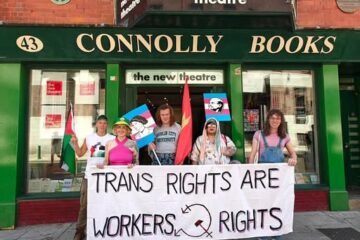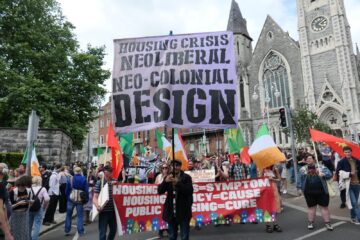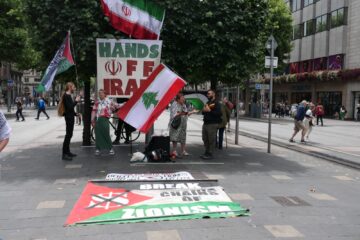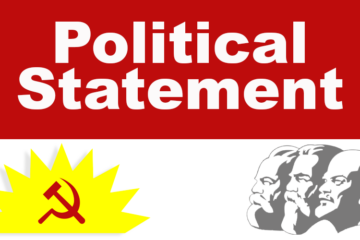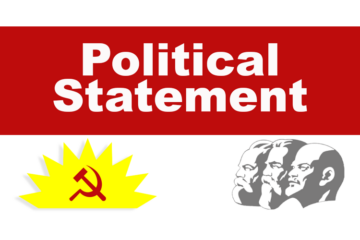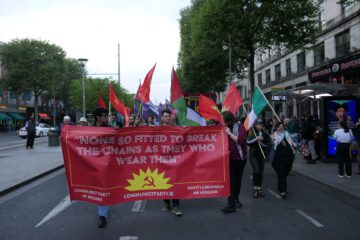8 October 2011
The National Executive Committee of the Communist Party of Ireland met on 8 October to discuss and evaluate the political and economic conditions in the country.
The economic crisis of the system continues to inflect great damage and hardship on the people, north and south. Poverty and unemployment continue to grow and spread, while emigration has now become a significant factor, with thousands of talented workers and young people leaving the country seeking a future for themselves and their families. These policies are being pursued both by the Irish Government in the Republic and by the British Government in the North, where the local administration has followed blindly the diktat from London.
In the Republic, economic growth has slowed—one of the central planks of the establishment’s policies for overcoming the crisis and the selling point that the massive socialised corporate debt was payable through economic growth. This is a similar situation to the position in Britain.
While the people are angry, they have not yet reached the point of open public resistance to the policies adopted and eagerly pursued by the Irish Government in alliance with the the external EU-ECB-IMF troika. The strategy of further cuts in public spending of €3 to 5 billion, in addition to further charges, taxes, and levies, hits hardest working people, the unemployed, the sick, and pensioners. Women will pay a greater price because of the part-time nature of much female employment and the high number of households headed by woman and in receipt of state supports.
It is clear that the Irish ruling class and their political representatives are prepared to sacrifice our people to the interests of monopoly capital. They will sell off valuable state companies built up over many generations of hard work and sacrifice by the workers in these public industries to pay off their debt to the ECB and to German, French and other European and global finance houses.
They do not care, nor is it in their class interests, that these vital strategic assets remain in public ownership, that they are essential strategic elements in building and securing a more independent economic, social and political development.
The trade union movement has not only a central role to play in defending the rights, terms and conditions of their members in these companies but needs to place these crucial public assets in a wider social context, to win the workers in these companies to the realisation that sectional interests must be challenged and overcome for the greater good and that the wider community needs to be brought into the struggle to maintain them in public ownership.
The party calls on workers in Northern Ireland to come out and support the day of action on 30th November called by the trade union movement. This will be an opportunity to let both the local political parties and institutions and the British Government realise the extent of anger and opposition.
The forthcoming presidential election has been a wasted opportunity. It could have provided an opportunity for rallying the people in a broad democratic struggle to resist the austerity policies of the EU-ECB-IMF and the Irish establishment, to raise the demand for greater political and economic sovereignty from the EU and to establish that no further sovereignty should be ceded.
Instead it has been reduced to a bland series of banal sound-bites and set pieces, where mediocrity has triumphed over substance. Given the difficult conditions in which people find themselves, and the narrow mandate that secures the candidates’ name on the ballot paper, the choice before the people is very limited.
When people vote they should consider both the position of the individual and the party that they belong to: they cannot be separated. Where do they stand on the austerity programme? Where do they stand on the debt question? Where do they stand on ceding further political and economic sovereignty to the EU? They should be urged to vote for the candidate that takes a stand in opposition to these policies.



